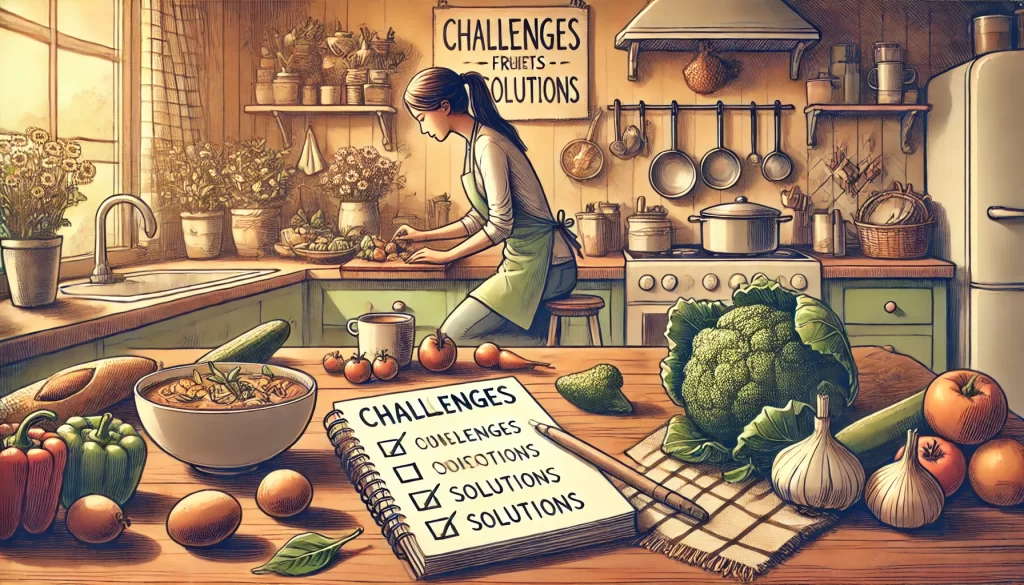How to Transition to a Plant-Based Lifestyle | A Comprehensive Guide
Step-by-Step Guide to Successfully Transitioning to a Plant-Based Lifestyle for Health and Sustainability

Transitioning to a plant-based lifestyle is a choice that many people are making today, whether for health reasons, ethical concerns, or environmental sustainability. This shift in diet doesn’t have to be overwhelming or restrictive; with the right approach, you can make the transition smoothly and successfully. In this guide, we’ll walk you through how to transition to a plant-based lifestyle, offering practical tips, advice, and insight to help you along your journey.
Table of Contents
What is a Plant-Based Lifestyle?
Before diving into how to transition to a plant-based lifestyle, it’s important to define what it entails. A plant-based lifestyle focuses on consuming whole, minimally processed plant foods, such as vegetables, fruits, grains, legumes, nuts, and seeds, while reducing or eliminating animal products like meat, dairy, and eggs.
Contrary to popular belief, a plant-based lifestyle doesn’t necessarily mean becoming a strict vegan or vegetarian. You can choose to incorporate plant-based foods gradually, or continue eating small amounts of animal products while emphasizing plants as the core of your diet. Ultimately, the goal is to reduce reliance on animal products and embrace the health benefits that come with eating more plant-based foods.
Benefits of Transitioning to a Plant-Based Lifestyle
Knowing the benefits of a plant-based lifestyle can help motivate you throughout your transition. Here’s how transitioning to a plant-based lifestyle can positively impact your life:
- Improved Health: Numerous studies show that a plant-based diet can help lower the risk of chronic diseases such as heart disease, diabetes, and high blood pressure. Plant-based foods are typically high in fiber, antioxidants, and essential nutrients, which can improve overall health and longevity.
- Weight Management: Plant-based diets tend to be lower in calories and higher in fiber, making them effective for weight loss and management. Since plant-based meals are often nutrient-dense and filling, they help curb hunger and reduce overeating.
- Environmental Sustainability: A plant-based lifestyle is often more eco-friendly than diets that rely heavily on animal products. Reducing the consumption of meat and dairy can decrease greenhouse gas emissions, conserve water, and protect natural habitats.
- Ethical Considerations: For many, transitioning to a plant-based lifestyle is about reducing harm to animals. By choosing plant-based options, you contribute to a more humane food system and reduce the demand for factory farming practices.
How to Transition to a Plant-Based Lifestyle: Step-by-Step Guide
Now that you understand the benefits, let’s explore how to transition to a plant-based lifestyle step by step. Whether you’re starting from a diet heavy in animal products or you’re already eating some plant-based meals, these tips will help you make the shift in a manageable way.
1. Start Slowly and Set Realistic Goals
One of the most important tips on how to transition to a plant-based lifestyle is to start slowly. Rather than making an overnight switch, begin by incorporating more plant-based meals into your routine. For example, you could start with “Meatless Mondays” or choose one meal a day to be fully plant-based.
Setting small, achievable goals allows you to build confidence in your ability to enjoy plant-based eating without feeling overwhelmed.
2. Focus on Whole Foods
As you transition to a plant-based lifestyle, prioritize whole, minimally processed foods. These include fresh vegetables, fruits, legumes, grains, nuts, and seeds. Avoid highly processed plant-based products, such as vegan junk food or fake meats, which may be high in unhealthy fats and preservatives.
Eating a variety of whole foods ensures you get a wide range of nutrients, and it helps you feel more satisfied after meals.
3. Find Plant-Based Alternatives for Your Favorite Meals
One of the easiest ways to transition to a plant-based lifestyle is to recreate your favorite meals with plant-based ingredients. For example:
- Instead of ground beef in tacos, try lentils or black beans.
- Swap dairy milk with almond, oat, or soy milk in your morning coffee or cereal.
- Use tofu or tempeh in stir-fries instead of chicken.
- Replace cheese with nutritional yeast or plant-based cheese in pasta dishes.
Finding alternatives for meals you already love can make the transition feel less daunting and more enjoyable.
4. Experiment with New Recipes
Transitioning to a plant-based lifestyle is a great opportunity to get creative in the kitchen. There are countless plant-based recipes that are both nutritious and delicious. Try new ingredients, experiment with plant-based proteins like chickpeas and lentils, and explore international cuisines that naturally emphasize plant-based dishes, such as Indian, Mediterranean, and Middle Eastern foods.
Cooking at home allows you to control what goes into your meals and helps you develop a deeper appreciation for the variety and flavor of plant-based foods.
5. Educate Yourself on Plant-Based Nutrition
A common concern when transitioning to a plant-based lifestyle is whether you’ll get enough nutrients. While a well-planned plant-based diet can provide all the essential nutrients your body needs, it’s important to be mindful of a few key areas:
- Protein: Incorporate plant-based proteins like beans, lentils, tofu, tempeh, quinoa, and nuts.
- Iron: Plant sources of iron include spinach, lentils, chickpeas, and fortified cereals. Pair iron-rich foods with vitamin C (like citrus fruits) to enhance absorption.
- Vitamin B12: Since B12 is mostly found in animal products, consider taking a B12 supplement or consuming fortified foods like plant-based milk and cereals.
- Calcium: Leafy greens, almonds, and fortified plant milks are excellent sources of calcium.
- Omega-3 Fatty Acids: Get omega-3s from chia seeds, flaxseeds, and walnuts.
Being informed about your nutritional needs will help you feel confident in your plant-based transition and ensure you’re meeting your health goals.
6. Plan Ahead for Social Situations
When you’re learning how to transition to a plant-based lifestyle, it’s important to plan for social situations like dining out or attending events. Research plant-based options at restaurants before going out, or offer to bring a plant-based dish to gatherings.
Many restaurants now offer plant-based meals, and there are usually ways to modify dishes to suit your diet, such as requesting no cheese or meat. Being prepared ensures you can enjoy social occasions without compromising your new lifestyle.
7. Stay Flexible and Listen to Your Body
While transitioning to a plant-based lifestyle, it’s essential to stay flexible and listen to your body. If you slip up and have an animal product, don’t feel guilty—it’s all part of the learning process. The goal is to make progress, not to be perfect.
Every individual’s journey is unique, so pay attention to how different foods make you feel and adjust your diet accordingly. Remember, transitioning to a plant-based lifestyle is about long-term changes that support your health and well-being.
Common Challenges and How to Overcome Them
As with any major lifestyle change, transitioning to a plant-based lifestyle comes with challenges. Here are a few common obstacles and tips for overcoming them:
- Cravings for Animal Products: It’s normal to crave familiar foods when you first transition. Combat cravings by finding satisfying plant-based alternatives and making sure your meals are balanced and filling.
- Social Pressure: Friends or family may not understand your new lifestyle. Communicate your reasons for transitioning and find ways to enjoy meals together by offering plant-based options they can try.
- Feeling Overwhelmed: Don’t try to overhaul your diet overnight. Focus on one meal or one day at a time. Celebrate small successes as you learn how to transition to a plant-based lifestyle at your own pace.

Conclusion
Learning how to transition to a plant-based lifestyle is a journey that requires patience, experimentation, and a willingness to explore new foods. By starting slowly, prioritizing whole foods, and educating yourself about plant-based nutrition, you can enjoy a healthy and sustainable lifestyle that benefits both you and the planet.
Whether you’re doing it for health, the environment, or ethical reasons, embracing a plant-based lifestyle is a powerful way to nourish your body, make mindful choices, and create lasting change.




